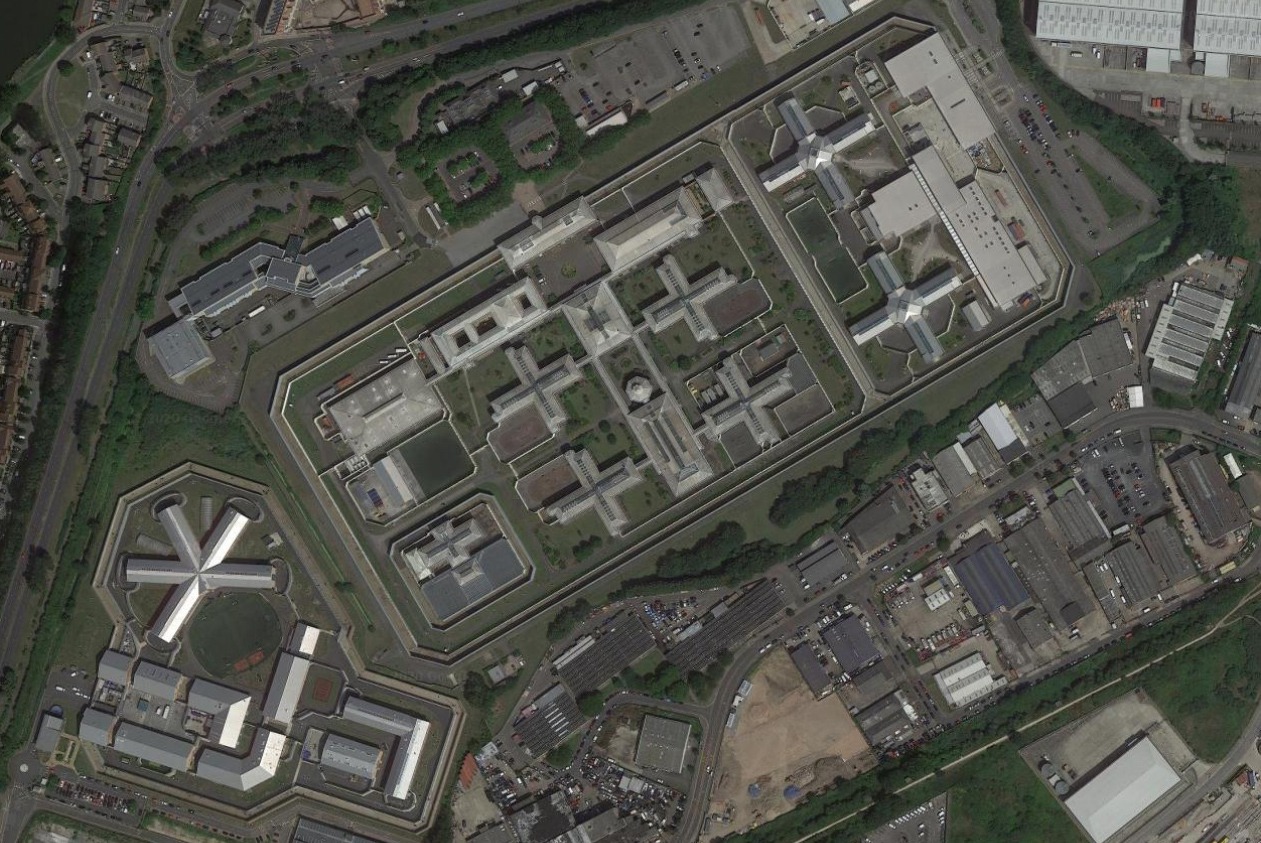Last week, lawyers for Julian Assange, who has a chronic lung condition, applied for emergency bail for their client on the grounds he was particularly vulnerable to the coronavirus pandemic. The presiding judge on the case, Vanessa Baraitser, rejected the claim.
Yet Declassified UK has found that HMP Belmarsh has been repeatedly criticised by prisons inspectors since 2005 for not having adequate anti-infection precautions in place.
New figures released to Declassified UK from Britain’s Ministry of Justice (MOJ) also appear to show the irregular nature of the conditions in which Assange is being held.
The figures, correct for March 11 2020, show that more than 20% of the Belmarsh prison population is held for murder, while nearly two-thirds — or 477 people — are imprisoned for violent offences. A further 16 inmates are held for offences related to terrorism, including four people who planned to carry out terrorist attacks.
Twenty inmates are held for sex crimes against children. This includes four people imprisoned in Belmarsh for rape of a child under 13, with a further three jailed for making indecent photographs of a child. Thirty-seven inmates are in Belmarsh for serious sex crimes, including 14 inmates convicted of rape of a woman aged over 16.
In the list of offences of Belmarsh inmates provided to Declassified UK it is likely that the one prisoner in the “fail to surrender to court/police bail at the appointed time” category refers to Assange. Another prisoner is held under a similar category: “fail to answer to court/police bail as soon as practicable”. It is not known who this prisoner is.
The new figures raise further questions as to why the WikiLeaks publisher continues to be held at Belmarsh, which is described as “holding high-security risk prisoners on remand and awaiting trial”. The prison is infamous for its “Category A” facility which houses inmates described by the British government as “prisoners who, if they were to escape, pose the most threat to the public, the police or national security”.
On Friday, two inmates at Belmarsh were charged with beating their cellmate to death inside the prison in February.

‘Perception of bias’
District Judge Baraitser is overseen by Lady Emma Arbuthnot, the Westminster Chief Magistrate who informally stepped aside on the Assange case after admitting a “perception of bias”. It is presumed this relates to her husband and son’s links to the military and intelligence establishment exposed by Assange and WikiLeaks.
However, Lady Arbuthnot has refused to formally recuse herself from the case, meaning the defence cannot revisit her previous rulings in the Assange case. It is also likely that Arbuthnot was involved in appointing Baraitser to oversee the case and is still responsible for “supporting and guiding” and “liaising” with her junior judge.
Assange has always said he sought refuge in the Ecuadorian embassy in June 2012 to avoid extradition to the US for his publishing activities. He was grabbed from the Ecuadorian embassy by British police in April 2019 and initially imprisoned for 50 weeks for violating bail conditions.
The ruling, which was close to the maximum sentence for the offence of 12 months, appeared to be irregular. By contrast, British man Jack Shepherd, who in 2015 killed a woman in a speedboat crash on the River Thames and was charged with manslaughter, was given a six-month sentence for skipping bail, half that awarded to Assange. Shepherd fled the country to the former Soviet republic of Georgia for 10 months before he turned himself in and returned to the UK.
In a 2018 ruling, Lady Arbuthnot dismissed Assange’s fear of being extradited to the US. “I accept that Mr Assange had expressed fears of being returned to the United States from a very early stage,” she said, but, “I do not find that Mr Assange’s fears were reasonable”. However, in April and May 2019, the US Department of Justice charged Assange with 18 criminal offences, mostly under the Espionage Act, which could see him facing 175 years in prison in the US.
Assange is now held solely at the behest of the US after his bail violation sentence was extended by Judge Baraitser last September on the grounds that his “remand status changes from a serving prisoner to a person facing extradition”. Assange may now be held indefinitely at Belmarsh given the likely delay in US extradition proceedings due to coronavirus.
Last month, 117 doctors and psychologists published a letter in the medical journal The Lancet calling for an end to what they called “the psychological torture and medical neglect of Julian Assange”. Nils Melzer, the UN Special Rapporteur on Torture, who visited Assange in Belmarsh in May 2019, has said Assange shows symptoms of “psychological torture”.
‘Inadequate infection control’
Declassified UK can also reveal that Belmarsh may be a particularly dangerous prison for inmates such as Assange who, in addition to a lung condition, also has significant dental problems. Belmarsh has been repeatedly criticised by prisons inspectors since 2005 for not having adequate anti-infection precautions in place, particularly in its dental facilities.
A 2007 report by HM Chief Inspector of Prisons following an unannounced biannual inspection found that “infection control was inadequate” citing “a lack of infection control measures in the dental suite”.
The next inspection, in 2009, similarly discovered that “infection control and decontamination standards were still not sufficiently good”. The 2011 inspection concluded that dental facilities were still a problem and that “the dental surgery should be refurbished to meet infection control guidelines”. It added: “A separate decontamination room should be installed in the dental surgery to ensure compliance with Department of Health regulation.”
Another critical inspection report in 2013 found the recommendation that the dental surgery be refurbished to comply with infection control guidance was “not achieved”. A 2015 enquiry further concluded that “all clinical areas, including house block treatment rooms, should meet current infection control standards.”
The inspectors’ 2018 report noted that there were now “suitable infection control and communicable disease policies” in place, but it is not certain if this is the case more than two years later. A report on conditions in Belmarsh by the Independent Monitoring Boards last year found that “major safety and decency concerns remain” while “the state of the showers and many of the toilets across the prison is appalling”.
Prisons are known to be among the most dangerous places for the spread of viruses. In Scotland prisoners nearing the end of their sentences could be released to halt the spread of coronavirus in the country’s jails. Iran recently released 85,000 prisoners, including British woman Nazanin Zaghari-Ratcliffe, to stop the spread of coronavirus.
Assange’s lawyer Edward Fitzgerald QC recently said his defence team was denied entry to Belmarsh because 100 prison staff were self-isolating due to coronavirus. Some 27 inmates have so far tested positive for coronavirus across 14 British prisons.


